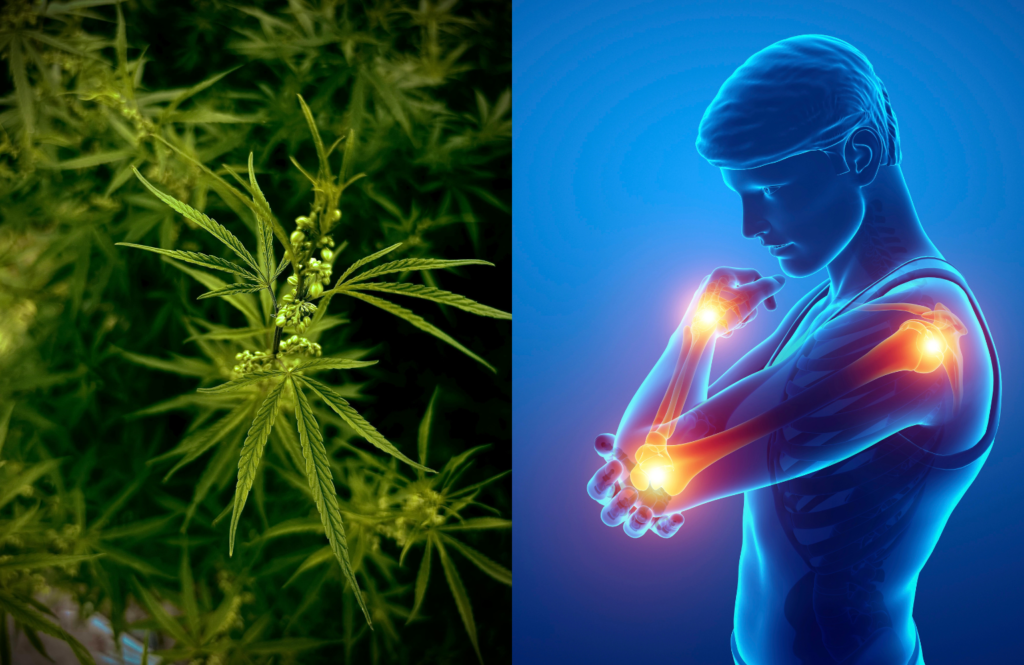Is Medical Marijuana Effective for Arthritis Pain Relief?
Waking up with stiff, aching joints isn’t just uncomfortable — it can change how you live your life. For millions of people with arthritis, simple tasks like getting out of bed, making breakfast, or climbing stairs can feel like uphill battles. Medications help for a while, but their effects fade, and the side effects often take a toll.
This daily struggle has led many to look for gentler, more natural options — and that’s where medical marijuana enters the picture. Once controversial, it’s now one of the most talked-about alternatives for managing arthritis pain. Patients report feeling less stiffness, better mobility, and improved quality of life. But is it really effective?
The short answer: maybe — and increasingly, science says yes.
Arthritis – Types and Symptoms
Arthritis isn’t a single condition — it’s a family of over 100 disorders that affect the joints, causing pain, stiffness, and inflammation. Each type comes with its own challenges, but they all share one thing in common: they can make even the simplest movements painful. Understanding the type of arthritis you have is key to finding the right treatment — including whether medical marijuana might help.
Osteoarthritis (OA)
- The most common form of arthritis, often called “wear-and-tear arthritis.”
- Develops when protective cartilage breaks down, allowing bones to rub together.
- Symptoms: joint pain, stiffness, swelling, and limited range of motion.
- Most often affects the hands, knees, hips, and spine — areas that carry daily stress.
Rheumatoid Arthritis (RA)
- An autoimmune disorder where the immune system mistakenly attacks joint tissue.
- Commonly affects the hands, wrists, and knees — often symmetrically.
- Symptoms include chronic pain, stiffness, swelling, fatigue, and joint deformity.
- Can also affect other organs like the lungs and heart if left unmanaged.
Fibromyalgia
- Not a true form of arthritis but often grouped with it because of overlapping symptoms.
- Causes widespread muscle pain, fatigue, sleep disturbances, and heightened pain sensitivity.
- May coexist with arthritis, amplifying discomfort and lowering pain tolerance.
Gout
- Triggered by a buildup of uric acid crystals in the joints.
- Known for sudden, intense pain episodes — often in the big toe.
- Common risk factors include high-purine diets, alcohol, and genetics.
Childhood (Juvenile) Arthritis
- Also called Juvenile Idiopathic Arthritis (JIA) — affects children under 16.
- Causes joint pain, swelling, and stiffness that may interfere with growth and mobility.
- Early detection and treatment are crucial to prevent long-term joint damage.
Each type of arthritis affects the body differently, but pain and inflammation remain the constant challenge. This is why cannabinoid therapy — targeting inflammation and pain at their biological roots — is becoming a key area of interest for arthritis relief.
The Role of Cannabinoids in Pain Management
Medical marijuana’s growing popularity in arthritis care isn’t just hype — it’s grounded in biology. The compounds in cannabis, known as cannabinoids, interact with your body’s natural pain-regulation system to help reduce inflammation, stiffness, and discomfort. For many arthritis patients, this means less pain and more movement — often without the heavy side effects of long-term painkiller use.
The Endocannabinoid System (ECS): Your Body’s Built-In Regulator
- The body naturally produces cannabinoids (called endocannabinoids) that help regulate pain, mood, and immune function.
- The ECS includes two main receptors:
- CB1 receptors — found in the brain and nervous system; they influence how we perceive pain.
- CB2 receptors — located in immune and joint tissues; they help control inflammation.
- CB1 receptors — found in the brain and nervous system; they influence how we perceive pain.
When cannabinoids from cannabis (like CBD and THC) interact with these receptors, they can restore balance, reduce inflammation, and ease pain signals.
CBD and THC — The Power Duo
- CBD (Cannabidiol):
Non-intoxicating and known for its anti-inflammatory and pain-relieving effects. It’s especially appealing to arthritis patients who want relief without feeling “high.” - THC (Tetrahydrocannabinol):
The psychoactive compound responsible for the cannabis “high.” But at controlled doses, it can be a powerful analgesic — calming pain and improving mood. - Together, CBD and THC can create a balanced therapeutic effect, reducing both inflammation and discomfort more effectively than either compound alone.
Why Cannabinoids May Help with Arthritis
- Target Inflammation: By activating CB2 receptors in joint tissue, cannabinoids can reduce the production of inflammatory molecules.
- Modulate Pain Signals: They influence pain-processing centers in the brain, reducing pain intensity and improving comfort.
- Protect Joints: Early studies suggest cannabinoids may slow cartilage degradation and protect nerve pathways involved in chronic pain.
Mechanisms – How Cannabinoids Alleviate Arthritis Pain
Researchers are now turning their focus to the mechanisms behind cannabis’s protective effect. The evidence suggests that cannabinoids—especially CBD (cannabidiol)—interact directly with the body’s systems that regulate inflammation and liver health.
Here’s how it may work:
1. Interaction with CB1 and CB2 Receptors
- CB1 receptors are mainly found in the brain and spinal cord, where they help regulate how pain signals are processed.
→ Activation can reduce the perception of pain and create a sense of relief. - CB2 receptors are located in immune cells and joint tissue.
→ When activated by cannabinoids, they help reduce inflammation and calm immune overactivity — a key factor in arthritis.
Together, these receptors form a feedback loop that helps balance the body’s pain and inflammation response.
2. Anti-Inflammatory Effects of CBD and THC
- CBD blocks inflammatory molecules (cytokines) and reduces oxidative stress, both of which contribute to joint pain and cartilage breakdown.
- THC not only eases pain but also helps modulate immune responses, which can benefit autoimmune arthritis types like rheumatoid arthritis (RA).
- This dual anti-inflammatory effect can reduce swelling and stiffness while helping protect joint tissue from further damage.
3. Modulating Pain Perception
- THC interacts with pain-processing centers in the brain, altering how pain is interpreted and helping make chronic discomfort more tolerable.
- CBD supports this effect by calming nerve activity and reducing hypersensitivity to pain — without psychoactive effects.
- Together, they help restore balance to pain signaling, making everyday movement more manageable.
By targeting both inflammation and pain perception, cannabinoids work on multiple fronts. For many arthritis patients, this means lasting relief that helps them move, rest, and live more comfortably — without excessive dependence on traditional pain medications.
Alternative and Complementary Therapies for Arthritis Pain
While medical marijuana can be an effective part of an arthritis pain management plan, it works best when combined with other holistic, evidence-based therapies. Pairing cannabis with complementary treatments can help reduce inflammation, improve mobility, and support overall joint health.
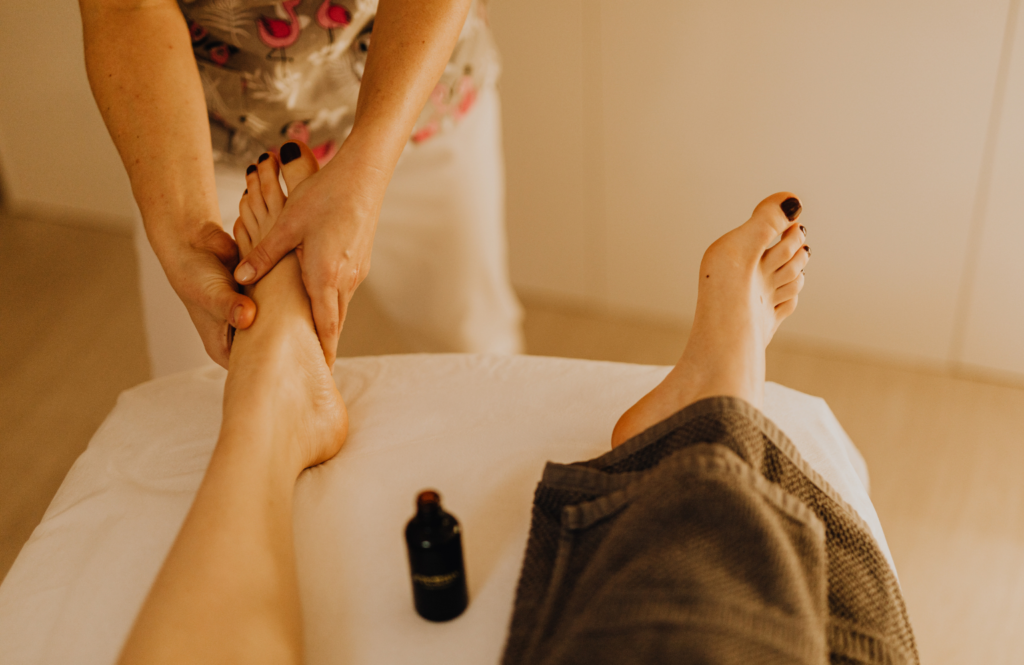
1. Physical Therapy and Movement
- Why it helps: Regular movement keeps joints flexible and muscles strong, reducing stiffness and pain.
- How to apply: A physical therapist can tailor low-impact exercises — such as swimming, stretching, or strength training — to your condition.
- Best results: Combine physical therapy with cannabis use to improve comfort during exercise and speed up recovery.
2. Nutrition and Dietary Supplements
- Anti-inflammatory foods: Include omega-3-rich fish, turmeric, berries, leafy greens, and olive oil.
- Supplements to consider:
- Omega-3 fatty acids – may reduce inflammation.
- Turmeric (curcumin) – helps block inflammatory enzymes.
- Glucosamine and chondroitin – support joint health and cartilage repair.
- Collagen peptides – aid in tissue recovery and mobility.
Pro tip: Avoid processed foods and refined sugars, which can trigger inflammation.
3. Stress Management and Mind-Body Techniques
- Chronic pain can worsen with stress, as tension increases inflammation and pain sensitivity.
- Practices like yoga, meditation, and breathwork can help calm the nervous system, reduce pain perception, and improve sleep.
- Medical marijuana may enhance relaxation, helping these techniques work even better.
4. Heat and Cold Therapy
- Heat: Use warm compresses, heating pads, or warm baths to relax muscles and improve blood flow to stiff joints.
- Cold: Apply ice packs to swollen or inflamed areas to reduce pain and swelling.
- Alternating both methods can be especially effective for flare-ups.
5. Acupuncture and Massage Therapy
- Acupuncture: Stimulates nerves and increases blood circulation, potentially reducing inflammation and pain.
- Massage therapy: Helps release muscle tension, improve joint flexibility, and lower stress.
- When combined with medical marijuana, these therapies can enhance overall pain relief and promote deep relaxation.
By integrating medical marijuana with these complementary approaches, patients often experience better long-term outcomes — less stiffness, improved function, and a greater sense of control over their arthritis symptoms.
Integrating Medical Marijuana into Arthritis Pain Management
Living with arthritis means managing pain that often touches every part of daily life — from how you move to how well you sleep. Traditional medications like NSAIDs and painkillers can help, but they don’t always provide enough relief and often come with side effects. For many, medical marijuana offers a gentler, more natural option that works with the body rather than against it.
- Targets the same pathways: Cannabinoids interact with the body’s endocannabinoid system — the same system that regulates pain, inflammation, and immune balance.
- Reduces medication dependency: Some patients find they can lower their doses of prescription painkillers or anti-inflammatories when using cannabis under medical supervision.
- Enhances quality of life: Beyond pain relief, many report better sleep, improved mood, and greater ease of movement.
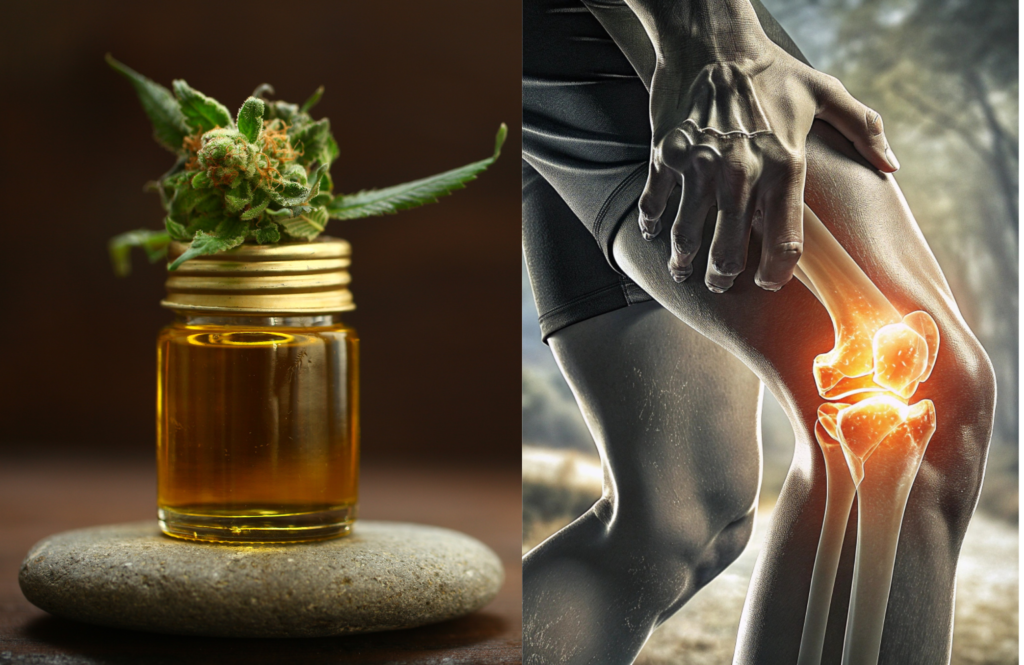
- CBD-dominant options: Ideal for daytime use and chronic pain management without psychoactive effects.
- THC-inclusive blends: Helpful for severe pain or nighttime relief, especially when mobility or sleep are affected.
- Balanced formulas (1:1 ratios): Offer both anti-inflammatory and analgesic benefits, with milder psychoactive effects.
- Work with a certified cannabis specialist to identify the best ratio and format (oil, capsule, tincture, topical, or vapor) for your condition.
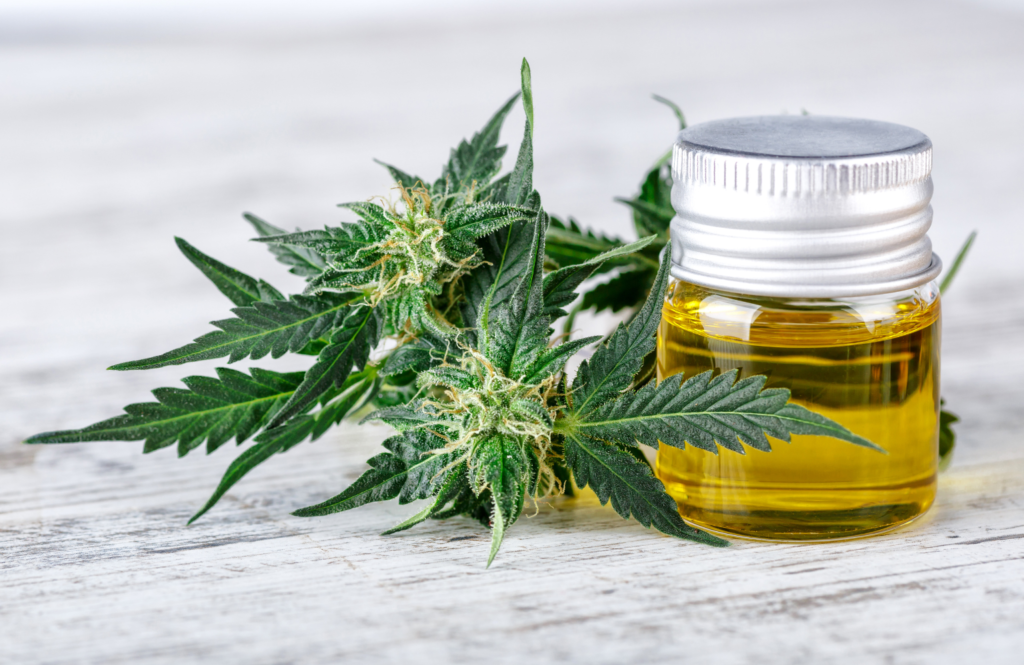
Using medical marijuana safely means having the right support:
- A qualified cannabis doctor can recommend the right products, dosages, and timing based on your medical history.
- Professionals also monitor for potential interactions with other medications and help adjust your plan as needed.
- Clinics like Greenlight MMj offer secure telehealth consultations, making it easier to get personalized advice from the comfort of home.

Medical marijuana isn’t a cure for arthritis — but for many, it’s a transformative tool that helps reduce pain, inflammation, and dependency on harsher drugs. When integrated into a well-rounded treatment plan, it can help restore mobility, comfort, and confidence in everyday life.
What We Know So Far
Medical marijuana isn’t a miracle cure for arthritis — but it’s quickly becoming one of the most promising natural options for managing pain, stiffness, and inflammation. By interacting with the body’s endocannabinoid system, cannabinoids like CBD and THC help calm overactive pain signals and reduce inflammatory responses that cause joint discomfort.
Current research suggests that cannabis-based therapies can improve mobility, enhance sleep, and elevate quality of life for people living with chronic joint pain. When paired with lifestyle changes, physical therapy, and practitioner guidance, it can form part of a truly holistic arthritis management plan.
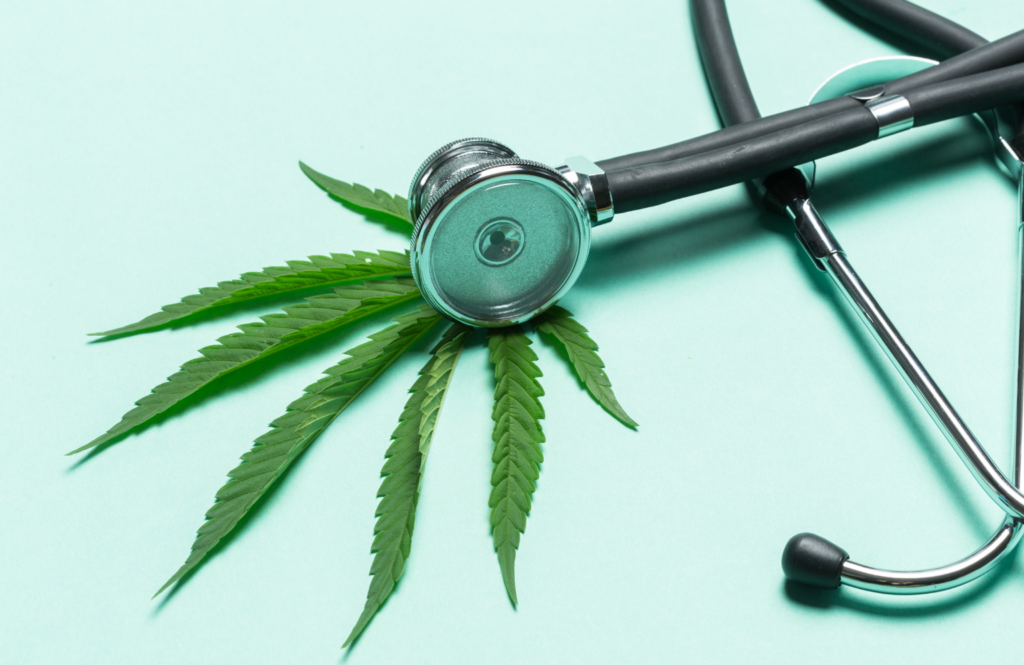
Legal access continues to expand, making it easier for patients to explore this therapy safely under professional supervision. Whether through oils, capsules, topicals, or balanced CBD–THC blends, medical marijuana offers a personalized path toward relief — one guided by science and supported by compassion.
If you’re considering medical marijuana for arthritis, speak with a certified cannabis specialist. They can help determine the right dosage, strain, and delivery method for your specific needs, ensuring a safe and effective experience.
Because living with arthritis doesn’t have to mean living in constant pain — and with the right guidance, medical marijuana could help you move toward a life with more comfort, balance, and control.

